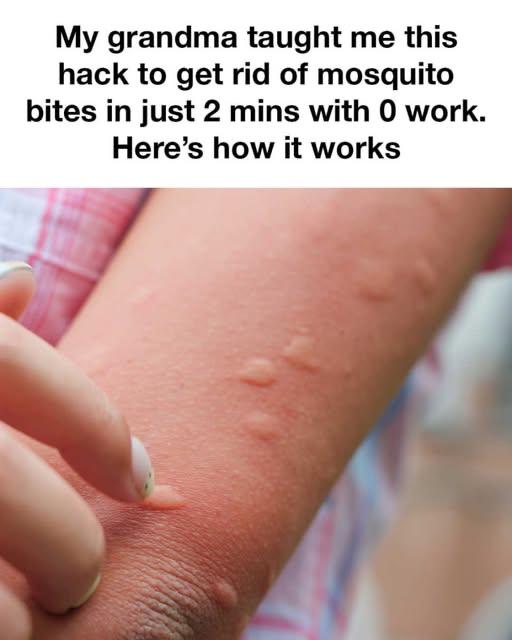Summer has arrived, bringing with it the familiar nuisance of mosquito bites. While these itchy bites can feel unbearable, a viral DIY remedy circulating on social media has caught the attention of many seeking relief: the hot spoon method. However, doctors are warning that this viral trick could do more harm than good. Here’s what you need to know before trying it.
What Causes Mosquito Bites?
Before diving into the hot spoon method, it’s important to understand why mosquitoes bite in the first place. According to the Mayo Clinic, it’s only female mosquitoes that bite humans and other animals. They require blood to develop their eggs, making your blood essential for their reproduction process. As mosquitoes feed, they inject saliva into your skin, triggering an immune response that causes the itching and bump we associate with mosquito bites.
The bite itself is uncomfortable, but the constant itching can drive anyone to try anything for relief.
The Hot Spoon Method: Is It Safe?
The hot spoon method has taken social media by storm. The idea is simple: heat a spoon in hot water, then press it onto the mosquito bite. Supporters of the method claim that the heat instantly neutralizes the itching sensation.
On TikTok, one video demonstrating this remedy has been viewed over 2.6 million times, with users claiming that it can provide relief in under a minute. The process seems straightforward: microwave water for one minute, heat the spoon in the water, and apply it to the bite.
This method might sound like a quick fix, and there is some science behind it. Heat can provide temporary relief by offering counter-stimulation, which distracts nerve cells from sending itch signals to the brain. However, while it may provide short-term relief, it’s not without risks.
.
Doctors’ Concerns About Using a Hot Spoon
Despite the short-lived relief it may offer, doctors strongly advise against using the hot spoon method. Dr. Kevin Wang, a dermatologist at Stanford University, explained that using hot water is risky. “The biggest concern is safety. Most people aren’t going to check the temperature of the water before applying it to their skin,” he said. “You’re at risk of burns, and this could result in first-degree injuries.”
Dr. Wang emphasizes that there are safer, more effective treatments available that don’t involve the risks of burns or injury. Applying a spoon that’s too hot can damage your skin, making this method not worth the risk.
Safer, Proven Remedies for Mosquito Bites
Instead of risking burns, medical professionals recommend using safer, proven methods to treat mosquito bites. Here are some options:
- Ice Packs: Applying an ice pack to the bite for up to 10 minutes can help reduce swelling and calm the itching. The cold also offers soothing, cooling relief.
- Topical Creams: Over-the-counter options like hydrocortisone or calamine lotion are both effective and safe for relieving itching and reducing inflammation.
- Oral Antihistamines: Medications like Allegra or Zyrtec can help manage the allergic reaction caused by the mosquito bite, reducing both swelling and itching.
- Natural Remedies: A simple paste made from baking soda and water can provide relief from itching when applied directly to the bite. Alternatively, taking a bath with colloidal oatmeal is known to soothe irritated skin.
The Bottom Line
While the hot spoon method may sound like a miracle cure, it’s important to recognize the risks involved. The danger of burns outweighs the temporary relief it may offer. Stick to proven, safe methods like cold compresses, topical creams, or oral antihistamines for lasting relief.
Remember, when it comes to your health, it’s better to choose reliable treatments over viral hacks. Protect yourself from unnecessary injuries, and enjoy a mosquito-free summer with safe remedies that really work.
Full Story: Man Loses 360 Pounds Naturally—Internet Rallies to Support His Next Step
Full Story: Tammy Hembrow’s Bikini Photos Are Stirring Controversy—Here’s Why Everyone’s Talking
By choosing the right approach, you can handle mosquito bites effectively without putting your skin at risk. Stay safe and keep the hot spoons in the kitchen where they belong!


